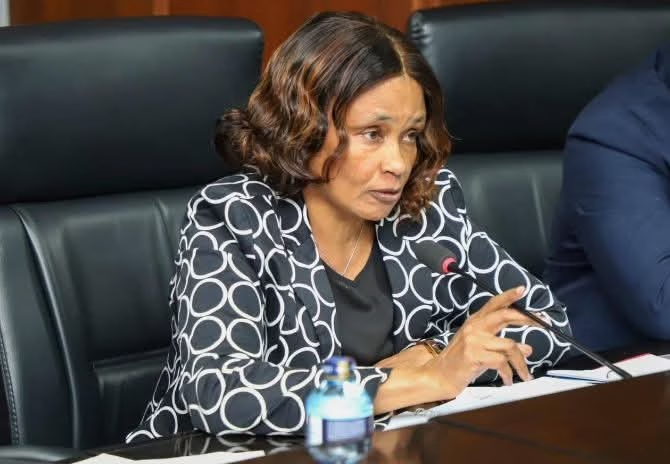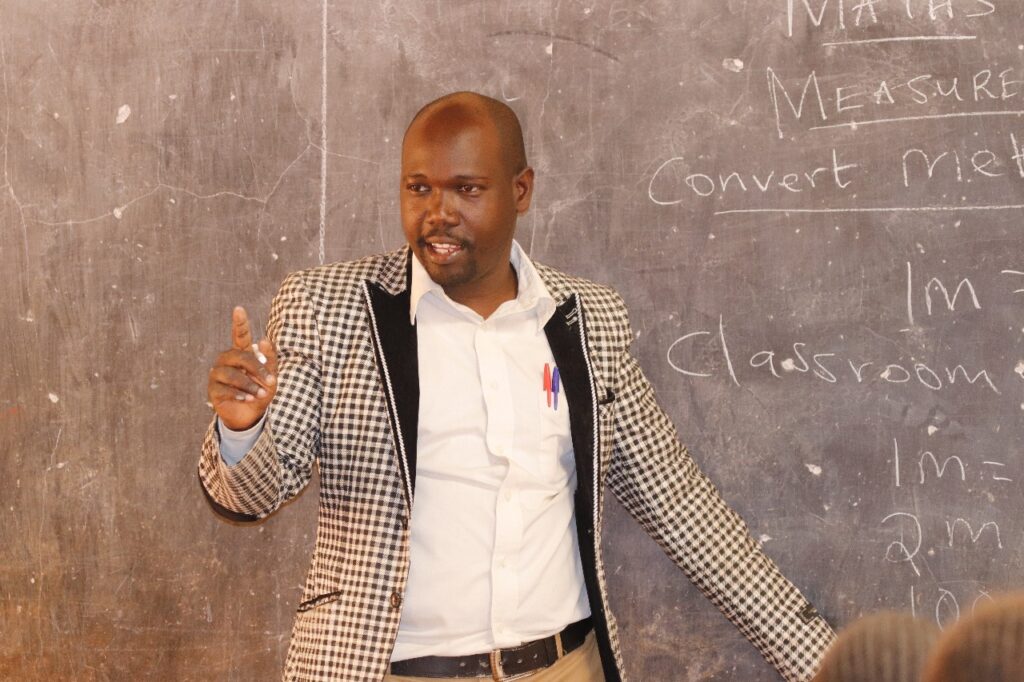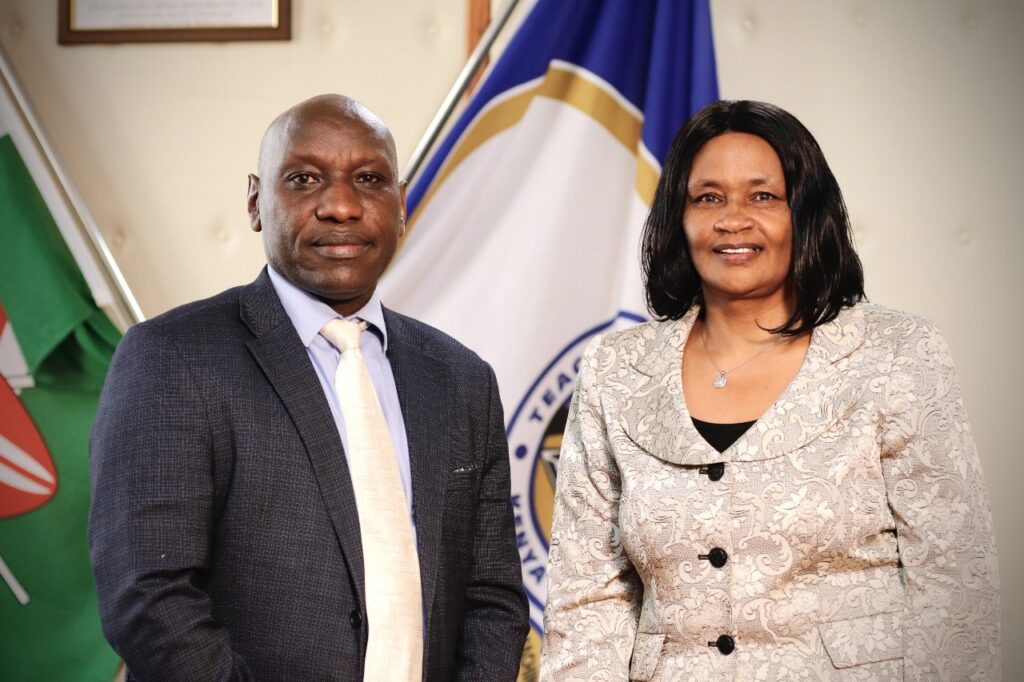A qualified teacher since 2013, he spent a decade waiting, applying, and hoping, each passing year ending in heartbreak as his name failed to appear on the Teachers Service Commission (TSC) list.
“I graduated from Machakos Teachers College in 2013,” he recalls. “Since then, I have been tarmacking, applying for a TSC job almost every year, nine times, but nothing came through. I kept asking myself, will my chance ever come?”
To keep his family afloat, Nzomo became a driver, dabbled in small businesses, and took odd jobs, doing whatever it took to make ends meet.
“Previously, we learnt about vacancies from newspaper adverts,” he explains. “You would travel long distances to deliver your application papers in person, wait for a call that never came, and later discover others had been recruited. There was no kind of transparency we see now. You just went home and hoped, until the next advert.”Year after year, he repeated the same cycle: hope, effort, and disappointment. Yet through it all, one thing remained constant: his unwavering belief that one day, he would be formally employed and finally stand before a classroom again, not just as a volunteer, but as a teacher in his rightful place.
“But even as he worked behind the wheel or manned a shop counter, his heart never left the classroom.
“Teaching was never just about employment; it has always been my calling,” he says.
That calling was finally answered, a decade later.
“I am personally grateful for this government and for the current office, TSC Machakos, because the new system in place there is a lot of accountability and transparency.”
Through reforms introduced under President William Ruto’s administration, the government launched an ambitious plan to recruit 116,000 teachers in 2022, beginning with systemic changes at the TSC.
A key part of this transformation was digitizing the recruitment process, a shift that the TSC Chief Executive Officer, Dr. Evalyne Mitei, calls “A game-changer because we have digitized our systems. It allows every trained teacher to access recruitment opportunities directly. Every teacher in this country now knows that the process is digital; they do not have to ask anyone when the next recruitment will happen,” she explains.
Adding that “Our recruitment process is online, and this is basically the entire process where the teachers apply online, and we shortlist online. That would definitely ensure transparency and effectiveness of the process. It also gives access to our teachers from wherever they are to be able to see the advert and apply.”
“When the results were pinned on the county noticeboard and I saw my name, I could not believe it,” he says with a smile. “It felt like a heavy burden had been lifted.”
He reported to Kwanthanze High School, where TSC officials guided successful candidates through the employment process. Soon after, he received his official posting letter.
Initially deployed to Bomet County, Nzomo was later transferred closer to home following the end of the delocalization policy.
Today, Steven Nzomo is living his long-awaited dream, teaching at Ngelani Comprehensive School in Machakos County, where his passion for education finally meets his purpose.
His arrival coincided with Kenya’s shift from the 8-4-4 system to Competency-Based Education (CBE), a change he fully embraces.
“In 8-4-4, the teacher was doing most of the work; it was teacher-centred. But now, with CBE, we guide learners as facilitators. They are more innovative, creative, and exposed. It makes learning easier and impactful.”
For Nzomo, the classroom is more than a workplace; it is the fulfilment of a dream he refused to let die.
His story mirrors that of thousands of teachers across Kenya who endured years of waiting, but never gave up on their calling.
Acting TSC CEO Evelyn Mitei confirms that his experience is not unique, noting that recent reforms have breathed new life into the sector.
“We have teachers who have overstayed after graduation for more than 15 years. In the last two and a half years, we have hired 76,000 teachers, numbers that would have taken 20 years under the old system. Our policy of ‘first-out, first-in’ ensures those who have waited longest are finally recruited.”
On his part, TSC Chairperson Dr. Jamleck Muturi underscores the importance of these hires.
“The first important person in Competency-Based Education implementation is the teacher. Recruiting more teachers reduces shortages, lowers the teacher-pupil ratio, balances workloads, and ensures every child enjoys the constitutional right to quality education.”
President William Ruto has echoed this commitment, announcing that by January, an additional 24,000 teachers will be hired. Funding for teacher promotions has also been doubled from Ksh 1 billion to Ksh 2 billion annually, enabling at least 50,000 teachers to rise in rank each year,” he added.
Meanwhile, Deputy President Kithure Kindiki has further affirmed that education now takes the largest share of Kenya’s national budget, an unprecedented investment since independence.
Prof. Kindiki assured parents, teachers, learners and stakeholders in the sector that the government will intensify funding to ensure accessibility to relevant and affordable quality education across all levels of study.
Speaking when he presided over the Murang’a Technical Training Institute Graduation ceremony in Maragua, Murang’a County, the DP said the government takes education seriously because it is key in economic development and transformation.
For Nzomo, these policies are not just numbers or announcements. They are the realization of a dream he clung to for nine long years.
Today, he steps into his classroom with renewed purpose, knowing his struggle was not in vain. “Once we enable the teacher, we enable the village. And once we enable the village, we build the nation,” he says with a smile.



